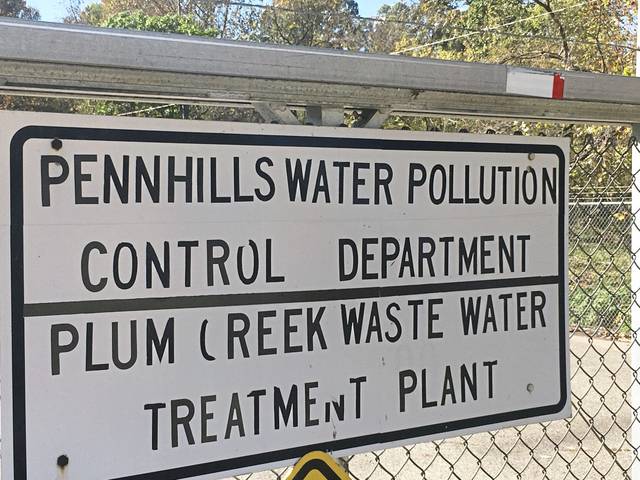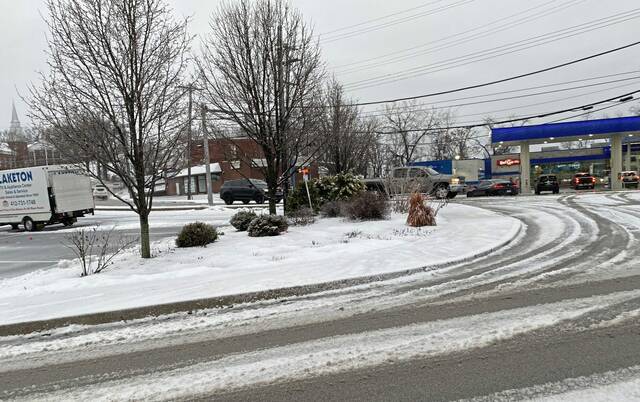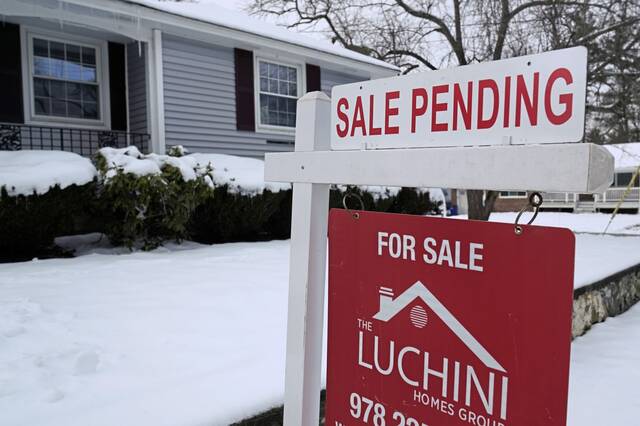Penn Hills needs to make upgrades to its Plum Creek Sewage Treatment Plant that could cost up to $700,000 within the next two years to prevent sewage from leaking into Plum Creek, according to an Allegheny County Health Department consent order.
The ACHD worked with Penn Hills to come up with the consent order that was unanimously approved by council at its Oct. 21 meeting.
It comes 10 months after Penn Hills was fined $17,500 for the same issue that has been blamed on excessive rainfall. It was determined then the Plum Creek Sewage Treatment Plant, located at 91 Colorado St., exceeded the allowable limit of fecal coliform bacteria and other contaminants that were discharged into Plum Creek.
It happened 18 times from 2016 to 2018. The ACHD’s latest finding determined there was untreated sewage that was discharged into Plum Creek.
ACHD, along with the state Department of Environmental Protection and federal Environmental Protection Agency, reviews a “Discharge Monitoring Report” of the Plum Creek Sewage Treatment Plant every month.
The DMRs for that plant following the January consent assessment found additional violations in April, May and June, according to ACHD’s Oct. 21 consent order.
Fecal coliform bacteria are generally not harmful, according to the federal Environmental Protection Agency. However, “(fecal coliform bacteria) indicate the possible presence of pathogenic (disease-causing) bacteria,” according to the EPA’s website.
Mike Moskorisin, ACHD’s Water Pollution Control Manager, said the exact amount of sewage that flowed into Plum Creek is unknown.
“There was no measurement with the discharge,” he said in an email. “The plant followed proper protocol and self-reported.”
Nevertheless, the violations do not pose a public health risk because Plum Creek is not a drinking water source, Moskorisin.
“We remind residents that they should never drink or bathe in creek water due to possible contaminants,” he said.
Tom O’Grady, director of Penn Hills’ Water Pollution Control Department, estimates the cost to fix the issue will be around $700,000. That includes improving the plant’s EQ instrumentation, which monitors flow control, for $100,000 and upgrading the plant’s disinfection system.
He referenced a 2002 agreement with the Plum Borough Municipal Authority that states any costs associated with new capacity are to be shared. O’Grady said Plum could reimburse up to 50% of the cost.
The Plum Creek plant treats sewage from Penn Hills and Plum.
Plum Borough Water Authority Manager Howard Theis said each month varies as to how much sewage comes from Penn Hills and Plum.
He verified the Plum Borough Municipal Authority could reimburse up to 50% of the cost. He said he works with Penn Hills every year to reconcile sewage flow and the year’s various costs.
O’Grady has said the plant’s disinfection system was installed in 2008 and designed to treat a maximum of 12 million gallons of wastewater per day.
Penn Hills Manager Scott Andrejchak said the sewage treatment plant was not originally designed to accommodate the amount of rainfall experienced in the area lately.
“We’re having to recognize that some of these rains are the new normal, and if it becomes the new normal, we have to make changes,” he said. “And we’re not seeing any indicator that we’re going to get less rain.”
The National Weather Service in Moon Township declared 2018 as the wettest year in Pittsburgh history with more than 57.41 inches.
So far in 2019, the NWS has tracked 43.81 inches of rain in the Pittsburgh region. Normally, that number sits around 31 inches by this time of the year, according to an NWS data set.
Meanwhile, Penn Hills continues to fix and update its outdated sewage system, which includes 244 miles of underground sewer lines, 12 pump stations, seven equalization stations and two sewage treatment plants.
Officials have said Penn Hills has paid $36 million since 2010 to update the sewage system. The municipality budgeted about $1.5 million for sewage repairs in 2018 and $1.6 million in 2019.








